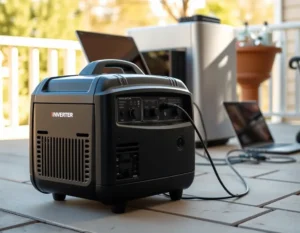
En el mundo moderno, donde la electricidad es fundamental para nuestras actividades diarias, las interrupciones eléctricas son un gran inconveniente, pueden afectar nuestra productividad y
One of the great aids that our times offer us is access to energy, especially electricity.. The domestic sphere is totally permeated by its use, to the point that a life in a home that does not have an outlet or artificial light is almost unthinkable.
Everyday life depends on the use and benefits we receive from appliances, which are the main consumers of energy at home. So, given that electricity is not free and that saving it not only helps your pocket but also the planet, we ask ourselves how we can make its use smarter and more responsible.
Next we are going to show you what advantages the intelligent and responsible use of energy in the home brings; In addition, we teach you some tips to make your home more energy efficient. But first, we need to understand a central concept in the question of electricity use: energy efficiency.

In simple words, energy efficiency refers to the relationship between the capacity of a machine or device to carry out a certain activity or job and the amount of energy resources it requires to do so.
We say that a machine is energy efficient when the energy resources it consumes are relatively low in view of the performance it demonstrates in the development of its work. Its efficiency is then good. Let us think, for example, of a refrigerator that, consuming a minimum of energy, keeps food and drinks at a low temperature.
It can also happen that a machine or appliance is inefficient in terms of energy. This would occur when, due to intrinsic defects in its operation or due to misuse, the device in question requires too much energy and does not perform optimally. In this case, we see, there is an excessive and absurd consumption of electricity that deserves to be corrected.
Energy consumption is usually reflected in the electricity bill. Its units are kilowatt hours. If we want to save energy, and consequently save money, the best thing we can do is reduce the kWh. But how?
The international measure to measure electrical energy consumption is the kWh. This unit of measurement represents the electrical power (measured in kilowatts or kW) multiplied by the time that said power was supplied (measured in hours).
As mentioned, such measure is recorded in the electric service bill. Such companies have different ways and different parameters to monetize this energy consumption. But there is something in common in all of them, indisputably: the higher the consumption, the higher the cost.
Reducing your consumption is a very reasonable measure. There are many ways of doing it. Many are popularly known, such as unplugging appliances and turning off lights that are not used, or not using the air conditioner. But even if they are useful, they may not be enough. If we really want to reduce consumption, we must think intelligently about how to do it.
What does it mean to make smarter use of energy? There are things that we can do and mean a real reduction in consumption, but that constitute some discomfort. Let's think about the following.
Let's say we're having a particularly hot day. We want to use the air conditioner to cool off, but we remember that it is one of the appliances that consumes the most electricity (up to 2200 W of consumption: which is almost like having 30 conventional light bulbs on at the same time). Consequently, we decided not to do it and endure the heat.
Was it or wasn't it smart to do it? It seems not. Using energy more intelligently does not mean sacrificing our comfort to save some energy and money. Rather, it means identifying what our most pressing and frequent energy needs are and thinking about how we can meet them in the most efficient way possible.
According to this, a smart measure is to fill the washing machine to its maximum capacity. Thus, we have it on and running fewer times and for less time. This measure, for example, also helps us save water. In this sense, intelligent consumption goes hand in hand with responsible consumption. Let's see.
At school they always repeated that energy is neither created nor destroyed, but rather transformed. And if one thing is clear, it is that the electrical energy that we consume on a daily basis was not always electrical and that it comes from somewhere. There are many ways to generate electricity, but the main ones, at present, mean the use of non-renewable resources.
What resources? Mainly thermoelectric plants, which by burning coal generate steam, which moves electric turbines. There are also those that, seriously intervening in nature, generate electricity, such as hydroelectric plants. These resources are limited, and spending them means an environmental footprint that is worth reducing.
So every time we waste electricity in the home, we are ultimately doing something harmful to the environment. Being responsible with the use of energy is, then, becoming aware of this problem.
But not only to acquire consciousness, but implement actions that counteract the detrimental effect of disproportionate and irrational energy consumption. The way to do it, as we anticipated, is to be smart about its use. Here are some concrete steps you can take to do so.
When talking about saving electricity by harnessing the sun, it is normal to think about purchasing solar panels. And it's an excellent idea. But taking advantage of the sun can be cheaper than you think. It is enough to take advantage of daylight to carry out our daily tasks without having to turn on light bulbs or any type of artificial light.
There are appliances that indisputably consume impressive amounts of electricity and that are not so necessary for our daily lives. For example, irons for clothes, which can consume the equivalent of 18 LED televisions on at the same time.
But avoiding abuse does not mean avoiding its use at all costs. It can be used when necessary and at a power that is not excessive. For example, to use the air conditioner reasonably is not to keep it turned off, but to keep it at a medium temperature.
It is known that conventional light bulbs use a lot of electricity, compared to saving light bulbs or LEDs. For example, a conventional 1100 lumen light bulb consumes about 75 W; while an LED bulb, also 1100 lumens, consumes between 10 and 15 W.

En el mundo moderno, donde la electricidad es fundamental para nuestras actividades diarias, las interrupciones eléctricas son un gran inconveniente, pueden afectar nuestra productividad y
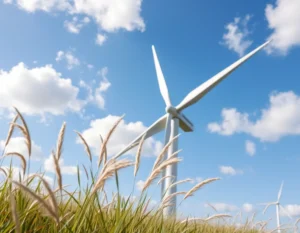
Las turbinas eólicas se han convertido en el emblema de la energía renovable, ofreciendo una solución sostenible y limpia frente a los combustibles fósiles. Sin

Cuando se trata de mantener la energía en situaciones de emergencia, durante viajes de campamento o en eventos al aire libre, un generador de 3500
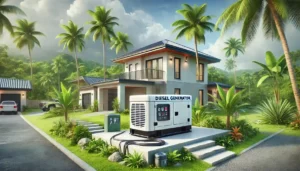
En tiempos de cortes de energía o desastres naturales, saber cómo usar un generador para alimentar una casa puede marcar la diferencia entre estar preparado
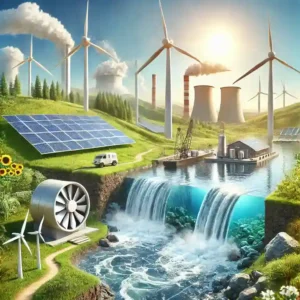
La búsqueda de energías alternativas se ha convertido en un pilar fundamental en la discusión sobre sostenibilidad y el futuro energético del planeta. Pero, ¿cuáles
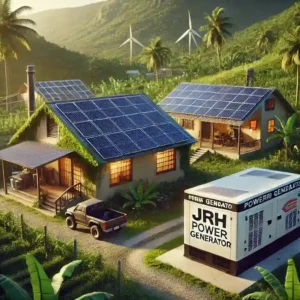
En un mundo donde la demanda de energía eléctrica sigue en aumento, las interrupciones de servicio y el costo creciente de la electricidad han impulsado